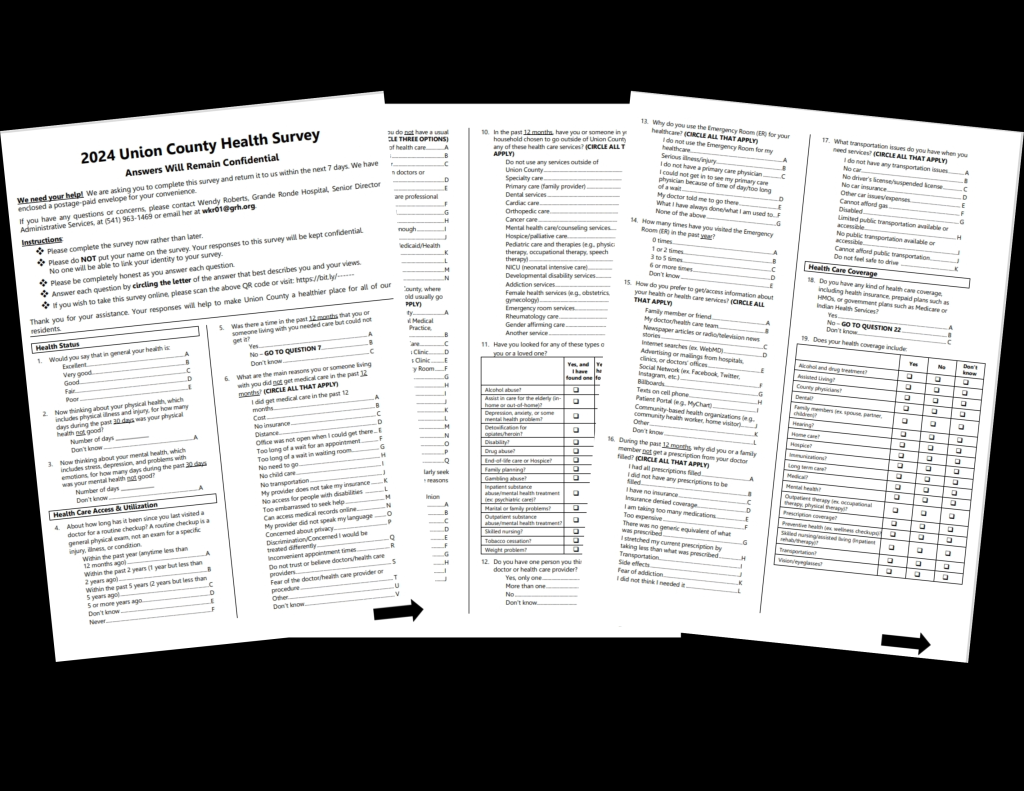Sponsored Content
Grande Ronde Hospital to Conduct Community Health Needs Survey
Published 12:00 am Monday, October 14, 2024

- Grande Ronde Hospital to Conduct Community Health Needs Survey
Grande Ronde Hospital (GRH) will soon send a community health needs survey to a randomly selected group of 2,000 Union County residents. This survey aims to help GRH and local community stakeholders identify unmet health needs within the community and plan future initiatives.
Wendy Roberts, GRH’s Community Benefit Officer and Senior Director of Administrative Services, explained that the survey is part of an ongoing cycle of assessment, planning, and action. “Every three years, not-for-profit hospitals like GRH are required by the IRS to conduct a Community Health Needs Assessment. This survey allows us to gather data, understand results, and implement a work plan based on our identified needs,” Roberts said.
GRH has partnered with the Hospital Council of Northwest Ohio for over a decade to conduct these assessments. The survey’s design is largely standardized, with 80% of the questions sourced from the Centers for Disease Control and Prevention’s Behavioral Risk Factor Surveillance System, which gathers data on health-related behaviors, chronic conditions, and the use of preventive services. The remaining 20% of the questions are developed by GRH in collaboration with local stakeholders, including the Center for Human Development (the local public health department), social service agencies, law enforcement, schools, and other key partners.
This comprehensive survey, consisting of more than 100 questions, covers a wide range of topics, including participants’ health status, exercise habits, diet, and overall well-being. The results will help GRH and its partners determine where to invest time and resources over the next three years. “The survey responses are critical in guiding our focus on the most pressing community health needs,” Roberts emphasized.
Some of the hospital’s recent focus areas include Social Determinants of Health, Mental and Behavioral Health, and Chronic Disease. As an example of the hospital’s community benefit efforts, Roberts highlighted a grant awarded to the Union County Court’s Treatment (Drug) Court program. The grant provides incentives, such as gym memberships, for individuals successfully completing the program—offering them a healthy activity and added motivation to complete their recovery journey.
Another impactful grant went to the Northeast Oregon Regional Food Bank, helping them purchase a large refrigerator to store fresh food for distribution to smaller local food banks.
Roberts emphasized that broad community participation is essential for the survey’s success. “We need everyone who receives the survey to participate,” she said. This year, the survey can be completed online via a QR code, but a paper version with a prepaid return envelope is also available for those who prefer to fill it out by hand. As an added incentive, a $2 bill is included in each envelope.
While the survey is extensive, Roberts encourages recipients to answer as fully as possible but reassures them that partial responses are still valuable. “The survey is for individuals 19 years and older, but many questions pertain to the health of everyone in the household,” she added.
Only those selected to receive the survey by mail are eligible to participate. The first wave of notification letters has already been sent out, and the surveys will follow in approximately four weeks.





